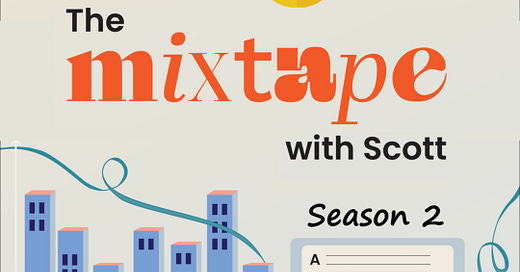Welcome to this week’s episode of the Mixtape with Scott. I guess I could say “And I am your host Scott Cunningham” but after over 50 of these, I guess you already know I’m the host. When I first became interested in economics, it was through an old working paper series called the John M. Olin working paper series, which was then affiliated with the University of Chicago’s law school. That was where I found Becker’s Nobel Prize speech which caused an immediate 180 on my career and led me into economics myself. But the thing that really stood out to me was that economics was about more than just banking and money; apparently it was also connected to law, and more specifically, there was a field called “law and economics” even. As I read more of the working papers at the working paper series, I became more and more interested with everything there, including law and economics. Which my way of creating a segue into this week’s guest.
I first met Jonah Gelbach, the Herman Selvin professor of law at UC Berkeley, at a conference in Paris on crime. He probably doesn’t even remember it. All I really remember of Jonah in that conference was two things. First, he pulled me aside and said a lot of nice things about my paper and told me thought it would publish really well. So that was encouraging and I made a note to myself, “Note to self, this guy said it would publish well. Hold him to it.” Second, I remember him passionately responding to his discussant that the paper he’d written had something called “a surface”. And I made a second note to myself, “Note to self, learn what a surface is.” It was something very clearly related to original, very technical, econometrics, and I made a third note to myself after that. “Note to self, this this guy’s name is Jonah Gelbach, and he apparently is a very good econometrician who also works on applied matters.”
Jonah’s an economist and a lawyer. He’s written several very influential articles in both econometrics but also applied economics. He did a PhD at MIT under Josh Angrist, if I remember correctly, during that heady time when causal inference was blossoming in Cambridge in the 1990s (he graduated in 1998). He then took a job at Maryland where he was eventually tenured, then to Arizona where he stayed until 2010. He then took the road less traveled: he quit a tenured job as an economics professor, went to Yale and got a JD in 2013, then went to Penn and is now at Berkeley where he writes in all the areas that he apparently loves — law, economics and econometrics.
I asked Jonah to be on the show for a few reasons. First, I made a note to myself to remember this guy for a reason. He’s very talented and very approachable, kind and thoughtful and funny. But two, as I said, he took the road less traveled. Quitting a tenured job in academia, giving up the golden handcuffs as they say, to go to law school to start over — it’s not the most common way to get a JD, arguably. And I guess I just wanted to learn that story a little better as I didn’t know it. But third, law and economics — now circling back where I started — is part of the story of economics of the last 50 years, and the podcast is ultimately about two things: the personal stories of economists building out the collective story of economics. We are a diverse tribe. Law and economics is part of that tribe’s story. And economists sitting inside law schools has also become part of that tribe’s story. And so I asked Jonah, and he graciously accepted, to be on the podcast so here he is! Thanks again for tuning in!















Share this post